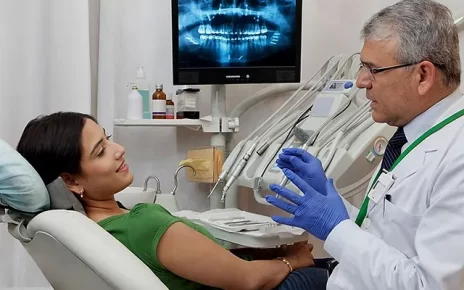Dental diseases remain one of the greatest public health challenges worldwide and disproportionately impact poor and socially disadvantaged populations.
Tooth decay is caused by bacteria that adheres to your teeth in the form of plaque. This bacteria converts processed and natural sugars into acids which erode away at your enamel and gradually cause tooth decay.
Tooth Decay
Tooth decay is the gradual destruction of the outermost layer of your teeth – known as enamel. When starchy foods and sweet beverages remain on your teeth for extended periods, bacteria attach themselves to them and produce acid which attacks it – ultimately breaking down and creating holes called cavities in the tooth structure.
Tooth cavities can be extremely painful, as well as lead to other serious health problems. An infection from cracked or decayed teeth can enter the bloodstream and lead to sepsis – an acute medical condition which affects heart, kidneys, and other organs in your body.
Avoid tooth decay by regularly brushing, using fluoride mouthwash, and avoiding sticky foods that linger on the tooth surface. In addition, visiting your dentist regularly for checkups and cleanings will allow them to identify cavities early when treatment may be easier.
Gum Disease
Gum disease occurs when a sticky layer known as plaque builds up on teeth and along gumlines, and your immune system responds by trying to eliminate bacteria that forms within this coating by producing an inflammation response, damaging surrounding tissue and bone as it does so. This damage makes eating harder while increasing your chances of tooth loss.
Untreated gum disease inflammation can result in gingivitis – a condition marked by red, swollen and irritated gum tissues that bleed when brushing – as infection progresses further, receding gum tissue may recede from teeth creating pockets filled with food debris; bone and tissue loss around roots of teeth leads to weakening which eventually can result in teeth falling out or becoming loose.
Gum disease can also weakened your body’s immunity, making it harder for it to fight infections from other sources and increasing the chances of health conditions such as diabetes and HIV.
Mouth Cancer
An unexpected diagnosis of mouth cancer can be both emotionally and physically devastating. The disease stems from changes in a person’s DNA which lead to cells proliferating uncontrollably instead of dying as normal tissues would. Over time these cells could form tumors which spread further throughout the head and neck area or even beyond to other parts of their bodies.
Regular dental examinations can assist in early cancer detection. Any painless mouth ulcer that doesn’t heal within three weeks, any unusual red or white patches in the mouth, lumps in your jaw or throat area and persistent hoarseness should all be examined by your dental team or doctor for examination and biopsy to confirm if a tumor is cancerous as well as its stage and grade; treatment plans depend on these factors – earlier cancer is detected, the higher its chance of curing success is.
Bone Grafting
Bone grafts are performed to restore areas of bone loss in the jaw due to tooth extraction or trauma or infection in the mouth. A bone graft provides stability to this area and makes way for future dental implant placement.
Surgery to place bone grafts typically uses local anesthetic, combined with inhaled or oral sedation for maximum comfort during this procedure. Most patients report no discomfort during this surgery process. Grafts can be made from your own bone (autograft), bone from another person (allograft), bovine animal bone (xenograft) or synthetic materials like calcium phosphate.
Prior to your procedure, it is advisable to refrain from eating anything for 8-12 hours and consult your dentist regarding any medications you are taking, particularly blood thinners that could increase bleeding during surgery. Finally, be sure to arrange transportation home as you will likely remain exhausted for some time afterward.





